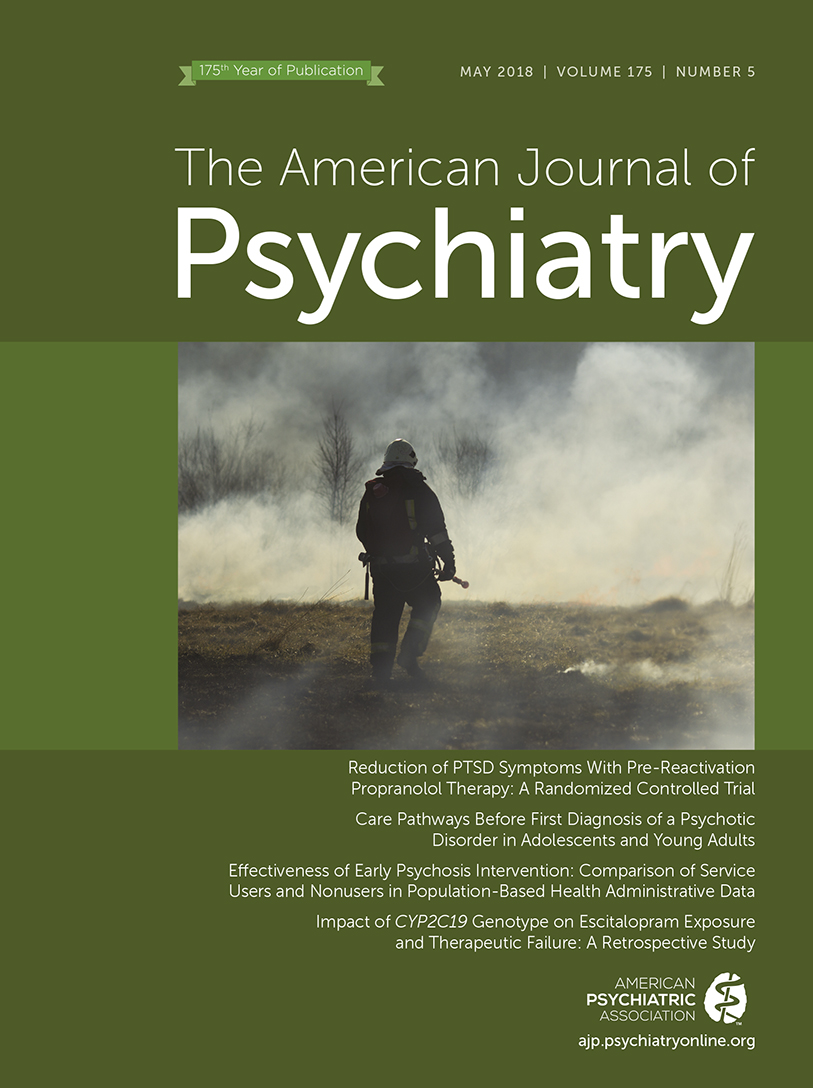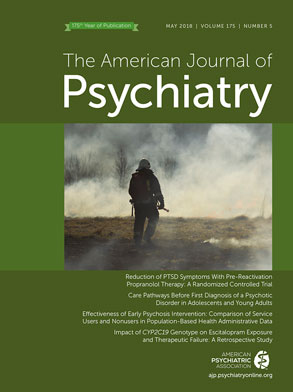T
o the E
ditor: The article by Sibley et al. (
1), published in the February 2018 issue of the
Journal, investigated the validity of late-onset attention deficit hyperactivity disorder (ADHD). The study examined whether control participants in the Multimodal Treatment Study of Children with ADHD (MTA) developed ADHD after childhood. Among those with elevated ADHD symptoms postchildhood, a large proportion did not meet diagnostic criteria after a stepped diagnostic procedure applied to data collected during frequent assessments across childhood, adolescence, and young adulthood.
Do these findings mean the case is closed on late-onset ADHD? How do we reconcile these results with three population-based studies (
2–
4) that found a majority of adult ADHD cases had onset after childhood?
The conclusions of Sibley et al. have been taken by many to refute the concept of late-onset ADHD. However, while the generalizability of the findings is somewhat limited—the study population had above-average family income and was 80% male (late-onset ADHD is more common among women [
3,
4])—even after the multistep diagnostic procedure, 3.3% were found to have late-onset ADHD. Excluding those whose ADHD remitted before age 20, this proportion is 1.7%. Although we cannot directly extrapolate to the proportion of the general adult ADHD population (prevalence estimated at 4.4% [
5]) who may have late-onset ADHD, these results point to some children without ADHD developing the disorder later in life.
The study concludes that many late-onset cases are attributable to other mental health disorders or substance use. However, it is well established that ADHD is often comorbid with other disorders (
5). Untreated ADHD can increase risk for poor mental health, and individuals with ADHD may self-medicate with drugs or alcohol. It can be difficult to disentangle whether ADHD symptoms cause or result from substance use or other mental health problems, especially when they occur concurrently. Previous studies from population-based cohorts investigated this issue by excluding from the late-onset group anyone with other comorbidities, and the studies found 33%−55% of the late-onset group remained (
2–
4). Research is needed to clarify the nature of the associations between ADHD symptoms and other disorders.
The importance placed on the origins of ADHD symptoms points to broader considerations related to diagnostic boundaries and the role of etiology in psychiatric nosology. Expanding from the discussion of differential diagnosis, as outlined by Caye et al. (
6), we can consider the more general question of what valid exclusions for an ADHD diagnosis are. For example, if ADHD symptoms are caused by prolonged substance abuse or other adversity resulting in long-term damage to the brain, should this be considered ADHD? Whether we understand ADHD as a “complex phenotype” encompassing a range of possible etiologies or a “restricted phenotype” in which only certain underlying causes produce a “valid” diagnosis remains an important theoretical question with many practical implications.
All studies that examined late-onset ADHD have identified cases, albeit representing different proportions of each study population. More work needs to be done to reconcile these findings. The MTA and epidemiologic studies concur that this late-onset group experiences distress, impairment, and poor functioning and may require clinical attention. Crucial questions remain about late-onset ADHD and ADHD over the life course.

